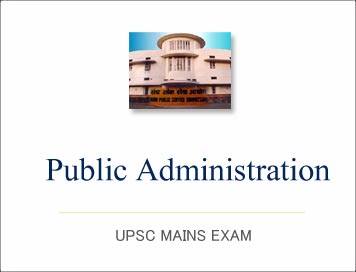Public Administration Mains 2022 : Solved Paper-1 (Question: 6)

Public Administration Mains 2022 : Solved Paper Question Paper-1 (Question-6)
SECTION-B
Q6.(a) The more exogenetic the process of diffraction, the more formalistic and heterogenous its prismatic phase; the more endogenetic the less formalistic and heterogenous.’ Examine this hypothesis of Riggs. (Financial Administration)
According to Riggs's hypothesis, the prismatic phase of a diffraction process should be more endogenetic and less formalistic and heterogeneous the more exogeneous it is. As a result, an exo-prismatic formalism is likely to have greater formalism heterogeneity as well as overlapping.
The Obstacles to Adaptation in a Prismatic Society; A prismatic society is subjected to both internal and external change pressure. Exogenous change is a term used to describe a situation in which a change is primarily the result of external factors, such as technical assistance programs.
Alternately change that is animated dominatingly through inward process is endogenous. Change is epigenetic when both types of pressure for change are relatively equal in strength.
In an attempt to absorb externally induced change as quickly as possible, prismatic societies face the potential for higher formalism, heterogeneity, and the severity of revolutionary tensions. This difference occurs because effective behavior precedes the creation of new formal institutions with endo-genetic change. On the other hand, in an exo-genetic transformation, the sequence is reversed.
(b) (b) The environment and situational conditions under which the government operates have an important bearing on its human resource development practices. Examine. (Comparative Public Administration)(PAID)
ANSWER: ONLY FOR COURSE MEMBERS
(c) (c) ‘Lindblom regarded rational decision-making as an unattainable goal.’ In the light of the statement, suggest measures to avoid policy failures.(Development Dynamics)
Lindblom regarded rational decision making as an unattainable ideal. The following two requirements must be met for rational-comprehensive decision making to function effectively: agreement on goals and a knowledge base large enough to allow for accurate predictions of the effects of the various options. The rational method does not offer any advice to policymakers in situations where these conditions are not met, which Lindblom predicts will be the case for the majority of policy issues. These issues are avoided by incrementalism, which results in policies that can be defended even when the rational approach fails.
Instead of pursuing abstract ideals like social justice, incrementalism places an emphasis on addressing specific issues. Through a process Lindblom referred to as "social fragmentation of analysis," affected publics bring issues to the attention of the government. Problems are frequently addressed without ever being fully defined, and no single actor possesses sufficient information to make a rational policy decision.
